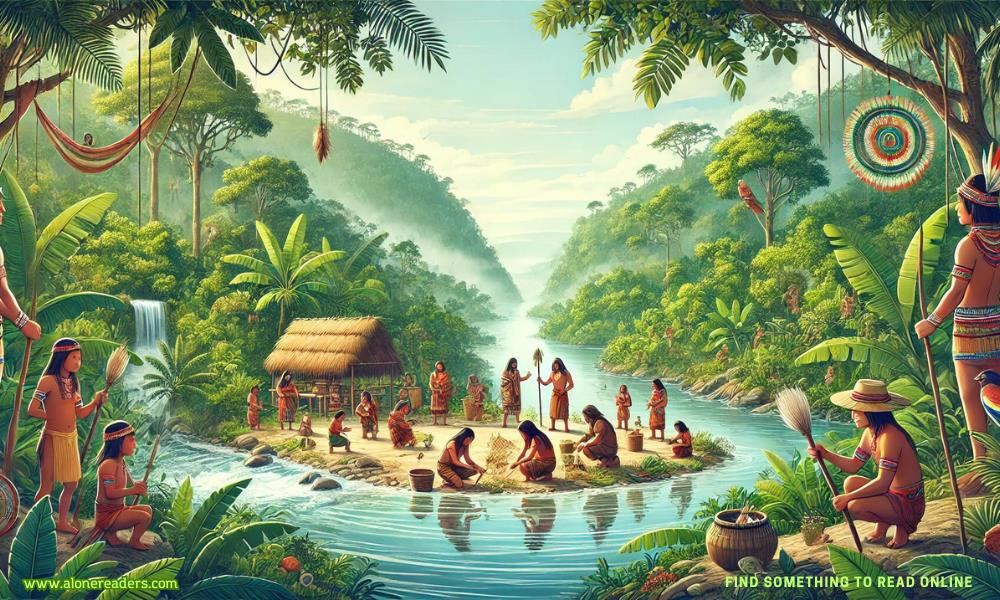
The United Nations has once again turned the global spotlight on indigenous communities by awarding the prestigious Equator Prize to groups whose innovative solutions are at the forefront of environmental preservation. This recognition underscores the crucial role that indigenous peoples play in addressing the pressing environmental challenges of our time, from climate change to biodiversity loss.
Indigenous peoples have long been recognized as the custodians of some of the world’s most biodiverse and ecologically significant regions. Their traditional knowledge and sustainable practices have preserved these environments for centuries, often standing in stark contrast to the exploitative practices of modern industries. The UN Equator Prize celebrates this unique relationship between indigenous communities and their lands, highlighting their contributions to global environmental conservation efforts.
Indigenous knowledge systems are often deeply intertwined with their environment, with cultural practices and spiritual beliefs that emphasize harmony with nature. This worldview has allowed many indigenous communities to maintain ecosystems in a balanced state, ensuring that natural resources are available for future generations. Their practices often include sustainable agriculture, forest management, and the protection of wildlife, all of which contribute to the health and resilience of ecosystems.
The Equator Prize, awarded by the United Nations Development Programme (UNDP), was established in 2002 to recognize outstanding community efforts to reduce poverty through the conservation and sustainable use of biodiversity. Over the years, the prize has evolved to honor indigenous and local communities who are not only safeguarding their environments but also demonstrating innovative solutions that can be replicated globally.
Each year, the Equator Prize honors a select number of communities from around the world. These communities are chosen for their innovative initiatives that protect, restore, and manage natural ecosystems, while also improving the lives and livelihoods of their members. The 2024 Equator Prize recipients include a diverse group of indigenous communities whose work ranges from forest conservation and reforestation to sustainable fisheries and renewable energy projects.
Among this year’s winners is a community from the Amazon rainforest that has successfully combined traditional knowledge with modern technology to monitor and protect their territory from illegal logging and mining. Using GPS and drone technology, they have mapped and documented their land, creating a powerful tool for defending their rights and preserving the forest.
Another recipient is an indigenous group from the Arctic, who are leading efforts to combat climate change by revitalizing traditional hunting and fishing practices. These practices, which have been passed down through generations, are now being adapted to address the rapidly changing environment caused by global warming. By promoting sustainable resource management, they are ensuring food security and cultural survival in a region facing unprecedented challenges.
In Africa, an indigenous community has been recognized for its work in restoring degraded lands through agroforestry and sustainable agriculture. By planting native trees and crops that are resilient to drought, they have not only restored the soil’s fertility but also created new economic opportunities for their people. This approach has proven to be a successful model for other communities in the region struggling with the impacts of climate change.
The recognition of these communities by the UN Equator Prize is not just a celebration of their achievements, but also a call to action for the global community. Indigenous peoples’ role as environmental stewards is increasingly being recognized as vital to the success of global efforts to combat climate change and protect biodiversity.
Research has shown that indigenous-managed lands are often more effective at preserving ecosystems than protected areas managed by governments. This is because indigenous communities have a deep understanding of their environment, including the seasonal cycles, animal behavior, and plant growth, which allows them to manage resources in a way that maintains ecological balance.
However, despite their proven track record, indigenous communities often face significant challenges, including land dispossession, marginalization, and lack of access to resources. The Equator Prize seeks to address these challenges by providing a platform for indigenous voices to be heard and by advocating for policies that recognize and support indigenous rights.
The recognition provided by the Equator Prize also highlights the importance of policy and advocacy in supporting indigenous communities. International organizations, governments, and NGOs are increasingly recognizing the need to protect indigenous rights as a means of protecting the environment. This includes securing land tenure, ensuring participation in decision-making processes, and providing access to financial and technical resources.
The UN Declaration on the Rights of Indigenous Peoples, adopted in 2007, is a key framework that outlines the rights of indigenous peoples, including their rights to land, resources, and self-determination. However, the implementation of these rights remains uneven, and many indigenous communities continue to face threats from extractive industries, infrastructure projects, and climate change.
As the world grapples with the twin crises of climate change and biodiversity loss, the role of indigenous peoples as environmental stewards has never been more critical. The solutions that they offer—rooted in traditional knowledge and adapted to modern challenges—are not just beneficial for their communities but for the entire planet.
The Equator Prize serves as a reminder that the answers to some of the world’s most pressing environmental problems can often be found in the practices and wisdom of those who have lived in harmony with nature for millennia. As the global community continues to seek solutions to these crises, the leadership and contributions of indigenous peoples must be at the forefront of our collective efforts.
Conclusion
The UN Equator Prize highlights the invaluable role that indigenous communities play in environmental stewardship. Their knowledge, practices, and resilience are essential in addressing the global environmental crises we face today. By recognizing and supporting their contributions, the world can learn from their example and work together to build a more sustainable and equitable future.